I’ve known Graham Spann for 35 years since we attended high school together in Asheville, North Carolina, USA. I adore Graham for his compassionate and thoughtful personality and am thankful that we recognized something in one another so many years ago that has remained relevant in our current friendship. Graham is husband to Shelly and a 20 year PhD Sociologist who has taught at various colleges and universities. He considers himself a humble sociologist who spends an inordinate amount of time reading, learning, and thinking about big issues regarding the environment, critical thinking, community participation, and making the world a healthier place for all. He’s a lifelong bicycle rider who loves to hike and has taught rock climbing and caving. He and his wife love to travel. Graham has suffered from depression his whole life and travel gives him great reprieve from debilitating depressive symptoms. Happily Graham is feeling wonderful these days! Keep reading through to the end to learn how he’s turned his health around.
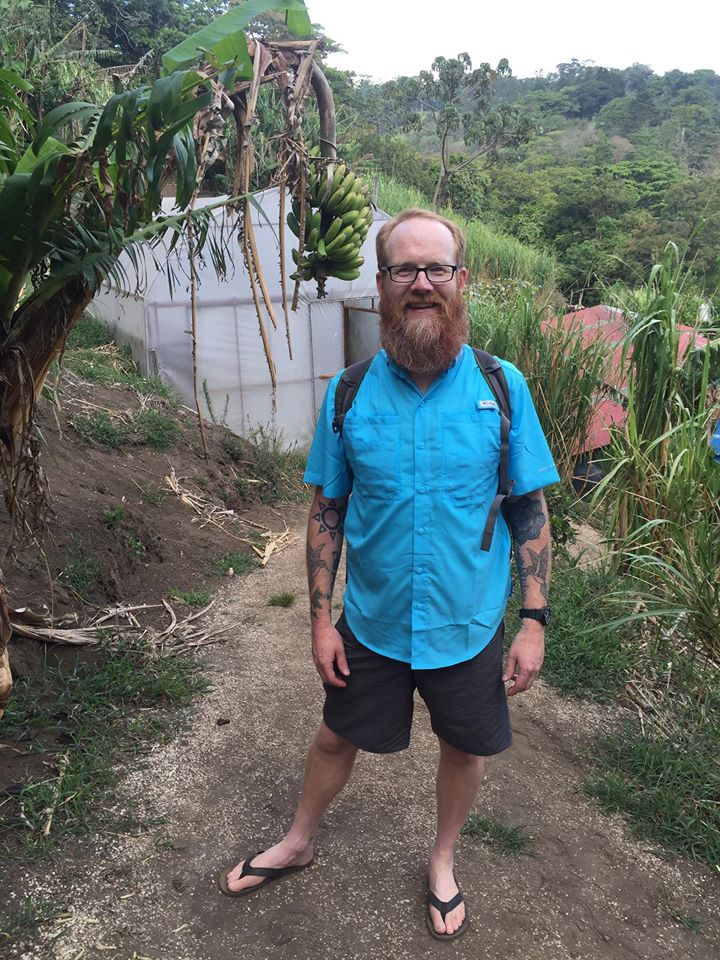
Carla: Are you an ethical vegan or a plant-based eater? Is it a whole lifestyle for you or is it just about the food? (definitions)
Graham: I’m an imperfect vegan. I’m pretty perfect when it comes to not putting animals in my mouth, but I still have an old leather belt from my pre-vegan days. I’m not going to disrespect what happened to that cow by throwing it away. I’m going to wear it out.
Carla: When did veganism find you?
Graham: Sometime in late 2008 I started my journey. Since I was 12 years old I’ve suffered from seasonal allergies. I was prescribed prescription medication, even steroids, to keep my eyes from swelling shut. Somewhere I read that dairy complicates allergies so I simply quit all milk, cheese, and other dairy but I was still eating occasional beef, poultry, and seafood. By Spring 2009 my allergies were much better. Then I gave up all meat but fish. By Spring 2010 my allergies were amazingly better. I went from a very expensive nasal/lung inhaler, nebulizer, and eye drops – all needed just to go to work – to no medicine at all now. In graduate school I used to sleep at the kitchen table sitting up so that my lungs wouldn’t fill up with fluid and mucous. My allergies are now basically gone. The worst it gets now is a little flare for which I wash my eyes with water and go inside.
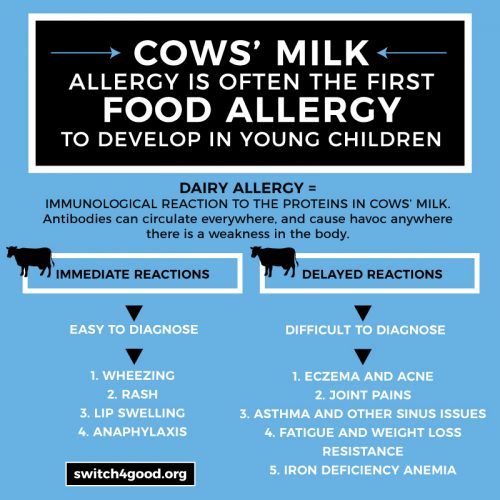
This change opened a whole new world to me. As I started feeling better, I started learning more about how farming livestock is just as environmentally destructive as sourcing coal, oil, and cheap clothing. Everytime I eat now I am able to feel good about my choices in that I’m actively helping to make the world a better place. These decisions and actions to live gently with Earth and all her inhabitants has become my spiritual practice. I enjoy tapping into the greater good with my choices. My downside is wine and whiskey. There’s work to be done! (laughter) It’s important for readers to know that vegans still struggle with human things. We’re not above anyone else in that regard. We can all still improve and make progress.
Carla: You were my very first Facebook friend in 2007. Do you think that social media had an impact on your growing awareness of animal rights? Or has it been more an influence from books?
Graham: I joined Facebook in 2005 back when it was limited to just university email addresses. I was one of the early producers and sharers of a lot of that vegan information on Facebook. I do think that social media has played a large role – for better and for worse – in learning and sharing information about animal rights. I finally stopped eating fish in 2010 because an environmental friend gave me an actual book about the oceans. So books work too!
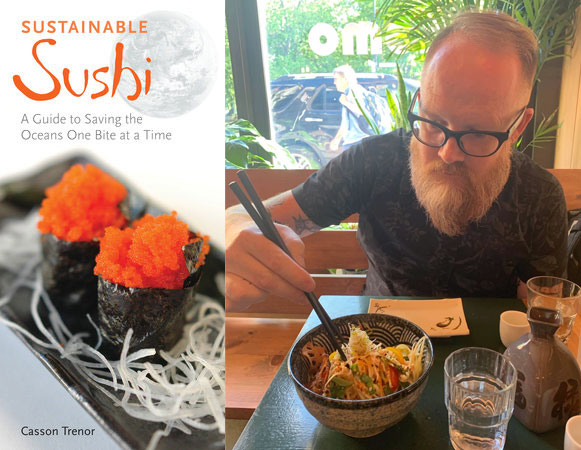
I’m convinced that I have pushed many people away, sadly, with my social media activity. Nonvegan people don’t particularly want to spend a lot of time with me over food. Food gatherings usually generate a lot of meat-eating apologies that I don’t solicit. Interpersonally, vegan activism has been a bit isolating. It’s tougher on my wife Shelly who is more social, but I tend to be okay with a small group of friends and my books. Ten years in I’m a bit weary of having to explain things to people who really don’t want to understand why I choose to not abuse, use, or eat animals. I’ve recently slowed down my social media activity for this reason and other positions I hold about civil rights.
Carla: What are some of the pushback statements that you’ve heard over the years?
Graham: Besides people apologizing for eating animals without me provoking any such statement, I’m getting a bit exhausted by the folks who defend the feelings of plants. I trust that people had a basic biology class in high school that would have informed them that plants have no neurobiology or pain receptors. There is no comparison to taking the life of plant versus taking the life of a chicken. These are radically different actions.
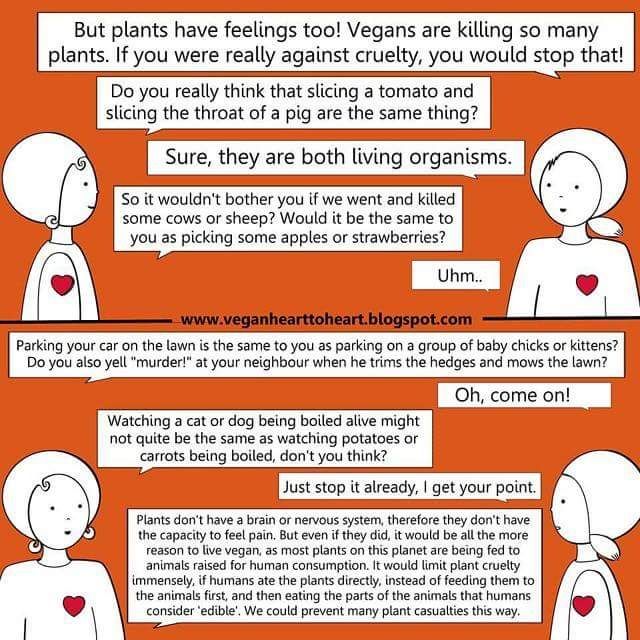
Carla: Do you eat vegan processed taste-alikes (mock meats, faux cheeses), whole unprocessed plant foods, or a mixture of both?
Graham: It’s become a mixture as the quality of many of the taste-alikes has increased. Once or twice a month it’s a treat to enjoy a Beyond Bratwurst. I’m not a big fan of the highly processed, ingredient-intensive vegan cheeses. It’s probably a 70/30 split right now. Some months its 90/10 when we’re eating extra healthy whole legumes, veggies, and fruits. It’s wonderful to be able to take a vegan burger to a July 4th cookout celebration and appear to be eating just like everyone else. It’s nice to get a break from standing out as “The Vegan.”
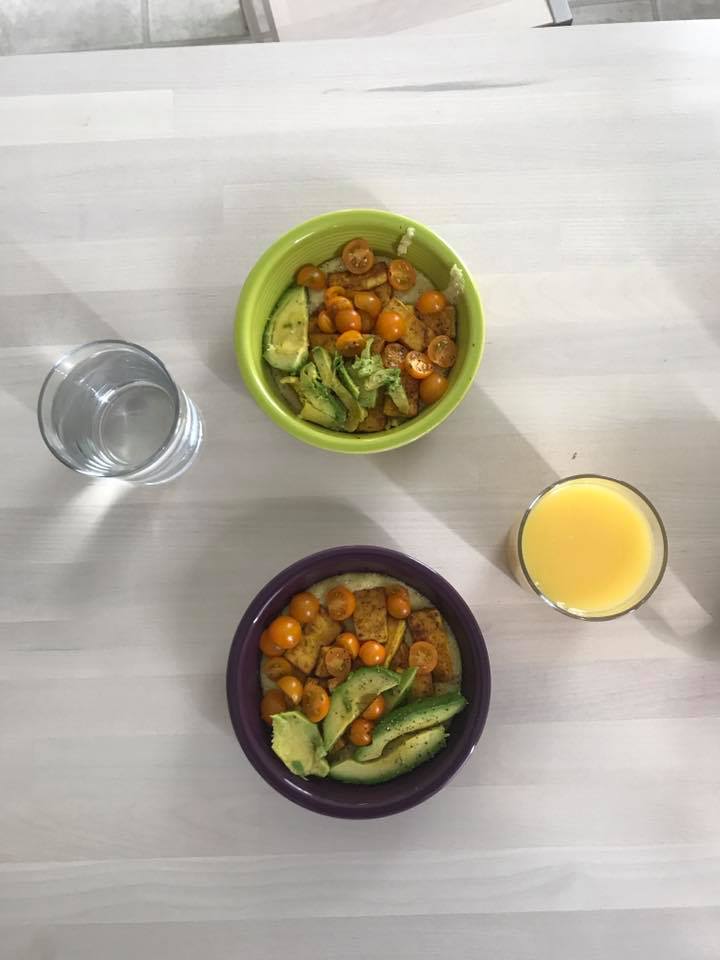
Carla: When you started changing your lifestyle and food choices to relieve your debilitating seasonal allergies, were there any people around you trying to encourage or discourage you?
Graham: At the beginning I wasn’t sharing with anyone that I stopped eating ice cream, cheese, or drinking milk. As I started seeing success, I became more vocal in how eliminating dairy could possibly help others too. Any pushback I received came after I accomplished becoming completely vegan and started talking about all the associated health, compassion, and environmental benefits of the lifestyle.
As a professor I often show documentaries like Forks Over Knives, The Game Changers, and Cowspiracy. One honor society student of mine was inspired and wanted to do a project with the society about animal agriculture that culminated in a downtown festival educational display. With my mentorship the society chose to focus on the water footprint of beef production and collected milk jugs that represented the gallons of water required to produce one burger.
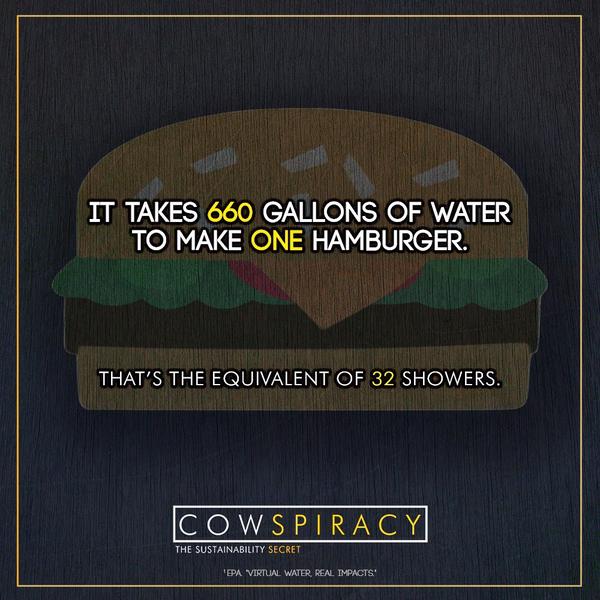
At the end of the semester in May I was invited to their ceremony and was inducted into the honor society. I felt great about having some influence that hopefully would have long lasting impact on the students, the school, and the community.
When I returned to campus in the Fall for the new school year – about 90 days later – I saw an announcement on campus for the same honor society’s barbeque fundraiser. I was livid! I shared my disbelief and disappointment with my university colleagues who I felt failed to uphold solid scientific data and education. The North Carolinian county in which our university is located has suffered severely from climate change river flooding that is exacerbated by regional hog factory farming waste runoff. I lost a lot of respect for those faculty members who scoffed at my anger over what I considered to be their negligence of responsibility to prepare our students for the climate reality we’re all experiencing right now. It’s important to commit to doing better once when we know better.
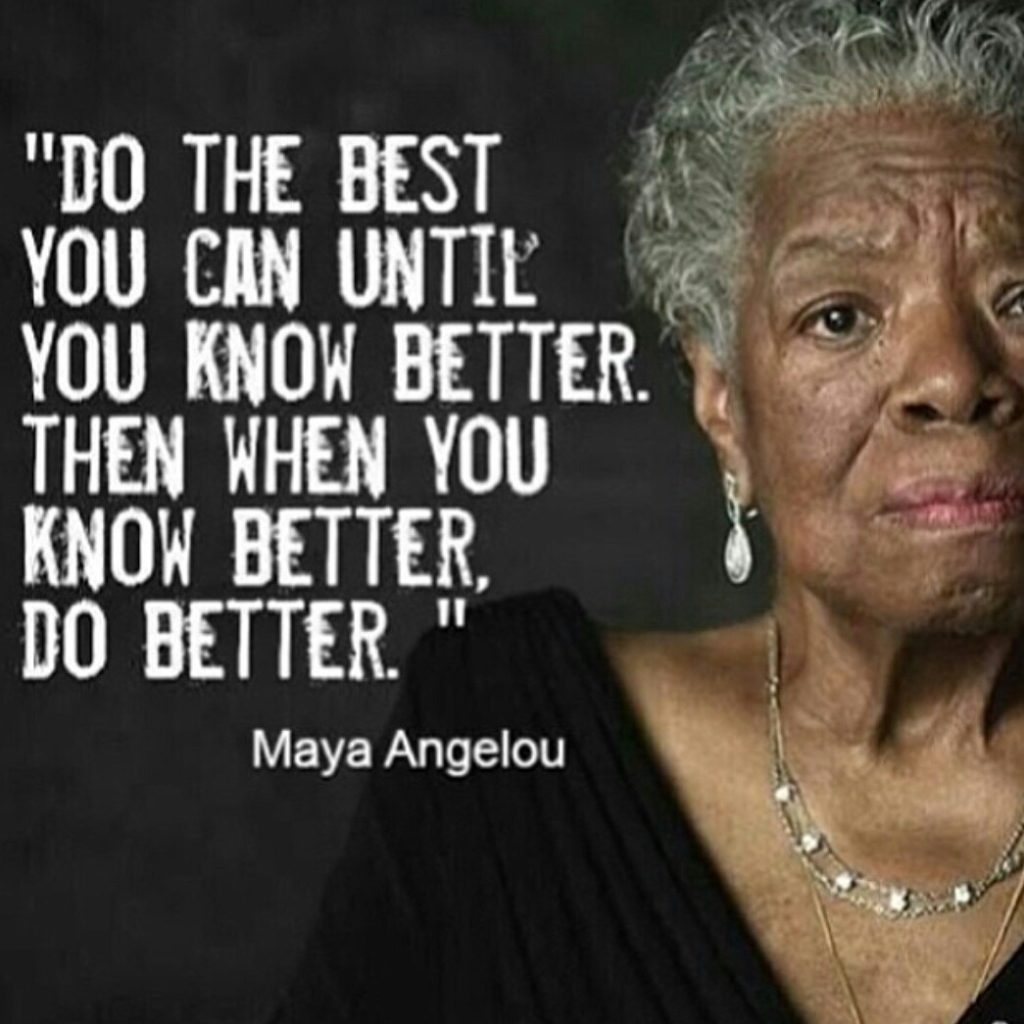
Carla: Talk to me about self-discipline. Has it played a role in your vegan journey?
Graham: Every year I want to refine my behavior to better align with my philosophy for compassionate living. Years ago the goal was to get a very small car. I went from an SUV to the smallest car one could buy. Then I changed my eating. Now when I need to purchase a new item like a wallet or shoes, I won’t buy anything that contains animal products. This requires a little extra effort to source attractive and affordable vegan items.
My wife Shelly and I are very aware of plastic and try to reduce our use of it as much as possible. For example the tofu that we buy comes in a plastic container that our municipality doesn’t recycle. We save items like this for when my wife’s family visits and they are kind enough to take it back with them to their larger municipality where this category of plastic is accepted by their recycler.
I’m very disciplined when it comes to eating, my schedule, my routine, and meeting deadlines. Internal conversation with myself and conversations with my wife help me to stay clear with what my goals are and to stay on track to meet them. It helps that Shelly and I have similar and compatible passions and goals. She was a veggie-forward locavore when we met and transitioned to fully vegan in a short couple of months after watching Forks Over Knives with me. She has been vegan for 5 years and it’s wonderful that we can be on this path together.
Carla: How is your depression these days? Does your diet impact how you’re feeling?
Graham: The depression lifts more and more the longer I’m vegan and living a life that matters to me and is in accordance to my values. I’m in the normal range right now with typical ups and downs which is huge for me after 30+ years (high school through graduate school) of basically not wanting to live. Going 10 days without a major depressive episode was very rare during that time. I went to Ireland as a professor for a 10-day study-abroad trip and realized that I wasn’t depressed once during the entire time. I knew there was medicine for me in traveling.
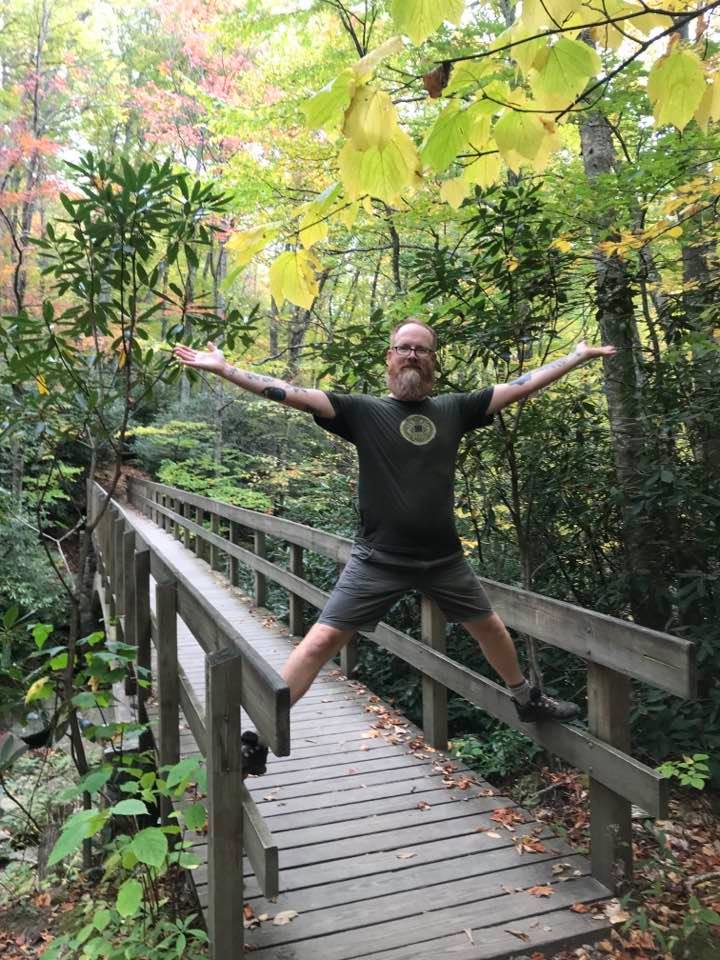
I can tell that my food affects my mood. I don’t know what it is, but sweet potatoes and black beans make me feel so happy. I was on 3 or 4 heavy duty medications for a long time which I no longer need nor use.
I have very supportive parents, a life partner, and a small circle of close friends who are very accepting of me and my lifestyle. They’ve known my struggles and are happy for me that I’m experiencing so much joy and peace.
Carla: What sage advice do you have for someone who is transitioning into a vegan lifestyle?
Graham: First, go slow. Pick something for a year, like a type of meat, and give it up for a year. No one will really notice. Next year pick another meat to eliminate. And as you’re going slow, study so that when you get to being fully vegan you will have all the knowledge and confidence that you need to face the inevitable pushback from friends, family, and mainstream culture with its neon signs, billboards, and advertisements that want you to eat meat, dairy, and eggs. It took me about 14-18 months to fully transition which I consider to be pretty quick but, of course, like most vegans, I wish I had done it faster and sooner. But it takes the time it takes and every step toward eating fewer animals and more plants counts toward sustainable and meaningful change.
Carla: Graham, it’s always a joy spending time with you. I hope the COVID19 travel restrictions lift soon and you’ll be able to embark on some new and exciting global journeys!
Readers, to access all the posts in this interview series, please click HERE.

{ 0 comments… add one now }